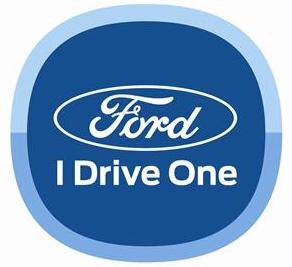

Texasota
Member-
Posts
176 -
Joined
-
Last visited
-
Days Won
1
Content Type
Profiles
Forums
Gallery
Downloads
Store
Everything posted by Texasota
-
The thing about this Ranger PHEV implementation that concerns me is the serious de-rating they did to the 2.3 Ecoboost. When the smallish battery pack becomes nearly depleted on a modest towing trip you now have a Ranger that is handicapped with an under powered ICE the same way that EREVs are. I don't think this Ranger PHEV implementation would be a good towing vehicle for my 4000 lb boat. On a positive note, I don't believe Ford would de-rate the 2.3 on a North American implementation of a Ranger PHEV. If they did, then it would not be received well (at least not for customers that want to tow). I really want a Ranger PHEV, but I would not purchase this one.
-

Speed limit information - Sync 4?
Texasota replied to Mercsable's topic in Ford Motor Company Discussion Forum
It is my understanding that the speed limit recognition system utilizes the connected navigation but it also has camera recognition of the physical speed limit signs. Does the camera recognition of speed limit signs also end after three years? -
Only speculation on my part, but I am guessing they are frantically tweaking software trying to make this fatally compromised truck work. It likely is not competitive as a BEV truck (short EV range), not competitive as a hybrid truck (grossly overweight) and not competitive as an ICE truck (inefficient and under powered when battery is depleted). Software will not be able to overcome this. I think Ford really got it right with the F-150 Powerboost. It is not compromised in any measure and will run circles around the Ram EREV.
-

Ford Vice Chair: Large EV Investments were a Mistake.
Texasota replied to mackinaw's topic in E.V. Central
The overall frenzy by the media and climate advocates put immense pressure on manufactures as well. Toyota was crucified for not quickly jumping into the EV frenzy. Turns out they were right about how this was going to play out. -

Ford Vice Chair: Large EV Investments were a Mistake.
Texasota replied to mackinaw's topic in E.V. Central
@akirby, can you invite rperez17 back? -

Ranger Super Duty Revealed
Texasota replied to DeluxeStang's topic in Ford Motor Company Discussion Forum
Anyone notice the squircle wheel wells? They are not round which is very unusual for Ford. Maybe a first? -

'25 1st Quarter Sales Results
Texasota replied to ANTAUS's topic in Ford Motor Company Discussion Forum
This. Unless Ford replaces the Escape HEV/PHEV with something just as good, then Ford no longer sells an efficient and practical vehicle for me. I don't give a rip about the Escape being boring, it meets my needs perfectly. -
I gotta say, I think it looks cool!
-
This article suggest we might: https://www.freep.com/story/money/cars/ford/2025/03/27/ford-ranger-pickup-sales-toyota-tacoma/82521315007/ According to that article we may see a conventional Ranger hybrid (maybe similar to F-150 Powerboost) or a Ranger EREV. I think that is likely given that Farley has said all Ford Blue vehicles will have a hybrid version by 2030. I'm guessing we will more likely see a Ranger Powerboost since all the required tech is sitting on the shelf and would be easy to add to the Ranger. A Ranger EREV, IMO, would have to much overlap with the new CE1 BEV pickup. But I could be biased and wrong because of my skepticism towards EREVs.
-
https://www.freep.com/story/money/cars/ford/2025/03/27/ford-ranger-pickup-sales-toyota-tacoma/82521315007/ According to the article we will likely see a conventional Ranger hybrid (maybe similar to F-150 Powerboost) or a Ranger EREV. I'm guessing we will more likely see a Ranger Powerboost since all the required tech is sitting on the shelf and would be easy to add to the Ranger. A Ranger EREV, IMO, would have to much overlap with the new midsize EV pickup coming out of the skunk works project. But I could be wrong because of my skepticism towards EREVs.
-

Ford Recall Troubles
Texasota replied to Bob Rosadini's topic in Ford Motor Company Discussion Forum
It would be interesting to see what percentage of the recalls are due to software. Having worked as a software engineer for 31 years at IBM, I can tell you that bugs get through no matter how much testing you do. Very often it is a timing issue where the stars line up perfectly to cause a problem that even excellent engineers would not have anticipated. It is challenging work. -
Yes, no doubt it would have enough torque to get the heavy rig moving, but will be very limited in speed just like the BYD Shark is. Completely agree. I think a PHEV is going to be the far better choice for the average guy that pulls an RV or boat more than 100 miles. It also performs well in city driving for trips under 40 miles. If Ram continues to promote this as a good towing truck for longer hauls it is not going to end well.
-
Below is a link to an article with some interesting details. It states the generator can produce 174 HP (continuous) of electrical power to feed into the electric motors once the battery is depleted. Ram is boasting that the 7500 pound Ramcharger can still tow 14,000 pounds when the battery is in this depleted state. Anyone want to drive a 21,500 pound rig with 174 HP? For a reference point, the Ford Escape with the turbocharged 1.5-liter three-cylinder produces 180 horsepower. https://www.motortrend.com/news/2026-ram-ramcharger-tech-deep-dive/
-

New Light & Medium Duty News
Texasota replied to Joe771476's topic in Ford Motor Company Discussion Forum
Yes, it is going to be fascinating, the RamCharger will be the first one to watch. I think they will be well suited for city/urban use, but very disappointing if used for long hauls. You can't overcome the physics involved with a heavy truck, a heavy load, long distances and a small ICE.



